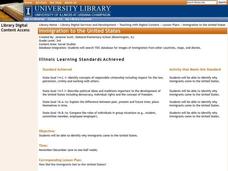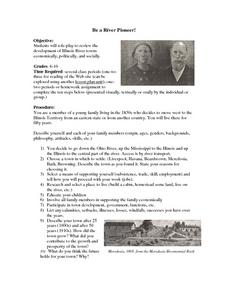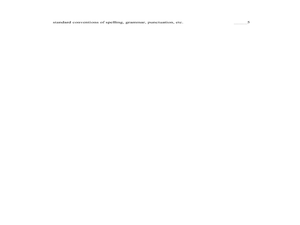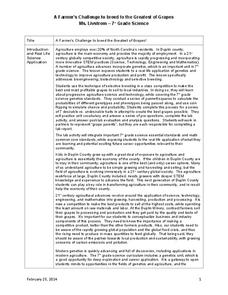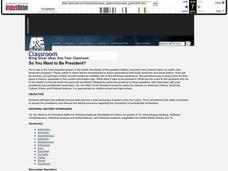Curated OER
Immigration to the United States
Third graders search TDC database for images of immigration from other countries, maps, and diaries. They identify why immigrants came to the United States and engage in a role-play simulating an experience the immigrants might have had.
Curated OER
Finding Fibonacci
Students study and apply the Fibonacci numbers and how they occur in nature. Students solve problems using the Fibonacci numbers.
Curated OER
Garbage/Solid Waste Disposal
Students examine the problem of solid waste disposal in modern society. They decide on a site for waste disposal. They investigate the many different types of waste that need to be dealt with. They participate in three learning station...
Curated OER
Be a River Pioneer!
Students role-play as pioneers in Illinois river towns. They research and choose a home town and participate in the development of the town. They present their simulation in either a written report or visual presentation.
Curated OER
Do You Like the Do?
Students explore different haircutting techniques and the tools used in haircutting. They practice cutting hair on a maniquin, give each other a trim to get rid of split ends and execute a specific cut as a culminating project.
Curated OER
Hafta Do NAFTA?
Students examine the benefits and problems of U.S. participation in the North American Free Trade Agreement. In two groups, students represent the campaign team for a presidential candidate, one for and one against NAFTA, and research...
Smithsonian Institution
Picturing George: A Pictorial Survey of the Life of George Washington
Students create pictorial biographies of George Washington. Working in groups, they research various portions of Washington's life, highlighting significant events. After presenting their projects to the class, they are displayed for...
Curated OER
A Tree Is More than a Street Name
Eighth graders discuss the role of trees as one of the most important natural resources. In groups, they examine how the forests nearby helped to shape their urban city. Using the internet, they research the use of the forest in early...
Curated OER
Production: Specialization and Division of Labor
Third graders select a product to produce. In teams, pupils participate in hands-on activities to explore the concept of specialization. They discover the differences between a division of labor and independent production. Classmates...
Curated OER
Social Class, Social Change, and Poverty
High schoolers begin to explore poverty and its implications on society and future generations. They should have had experience with identifying social change that happens gradually and social change that happens quickly because of...
Curated OER
Contemporary Immigration
Eleventh graders analyze the patterns and waves of immigrants that have come to the United States from 1850 to 2000. They participate in a class discussion about immigration, and in small groups conduct research analyzing and evaluating...
Curated OER
What Makes A Community Sustainable
In this environment worksheet, high schoolers read three different case studies in order to apply them to the categories of finding the best possible choices to make for helping a community flourish.
Curated OER
The Economy of the 1920s v. The Economy of the 1930s
In this U.S. economics of the 1920s and 1930s worksheet, students read a passage and then complete a graphic organizer comparing the credit, wages, employment, sales, stock market, and banks in the 2 decades.
Curated OER
CSI: Chemistry Student Investigators
Students study chemistry. In this laboratory lesson students watch the CSI episodes and investigate their laboratory techniques and discuss what they saw.
Curated OER
Social Effects of WWII on SC (Pt. 3)
Fifth graders examine the impact of World War II on South Carolina. In this American history lesson, 5th graders analyze primary documents that include political cartoons and advertisements that were published in South Carolina during...
Curated OER
Basic Tree and Forest Measurements
Young scholars examine how trees are measured and the different methods used. In this density lesson learners divide into groups and practice the different methods.
Curated OER
Reforming Wall Street & its Booms, Bubbles & Busts
Learners examine Wall Street Reform. In this current events lesson, students read the provided articles "Why a Financial Crisis?," "Deception and Leadership Failure=Boom, Bubble, Burst," and "How Can a Future Financial Crisis be...
Curated OER
Business Interview
In this economics activity, students follow the provided outline to interview business owners about supply and demand issues. Students write interview summaries based on their findings.
Curated OER
Sir Tim Berners-Lee
In this famous person instructional activity, students read a passage about Sir Tim Berners-Lee and then complete a variety of in-class and homework activities to support comprehension, including partner interviews, spelling, cloze,...
Will Steger Foundation
The Carbon Cycle - What are its Implications for Climate Policy?
The carbon cycle isn't a bike which produces carbon and this lesson explains why. Through reading and discussion, groups of pupils create visual explanations of the four parts of the carbon dioxide oxygen cycle. Activities...
Kenan Fellows
A Farmer’s Challenge to Breed to the Greatest of Grapes
What does your class know about GMOs? Are they savvy to selective breeding? Challenge young minds to engineer the greatest crop of all time using a hands-on genetics unit. Learners discover the good and bad details of selective breeding,...
Curated OER
Introduction to Community Helpers
Students discover philosophy by viewing a PowerPoint presentation. In this community helper lesson, students identify the jobs and careers around the city which help to benefit residents and children who live in the area. Students view a...
Curated OER
To Be or Not To Be
Fifth graders investigate and conduct an interview associated with a career they are considering. They present the information in an expository writing piece using a different point of view.
Curated OER
So You Want to Be President?
Students view a documentary on U.S. Presidents. Those called to serve be remembered by future generations that study American and world history. After viewing, students discuss what they saw then create a poster about the electoral process.


